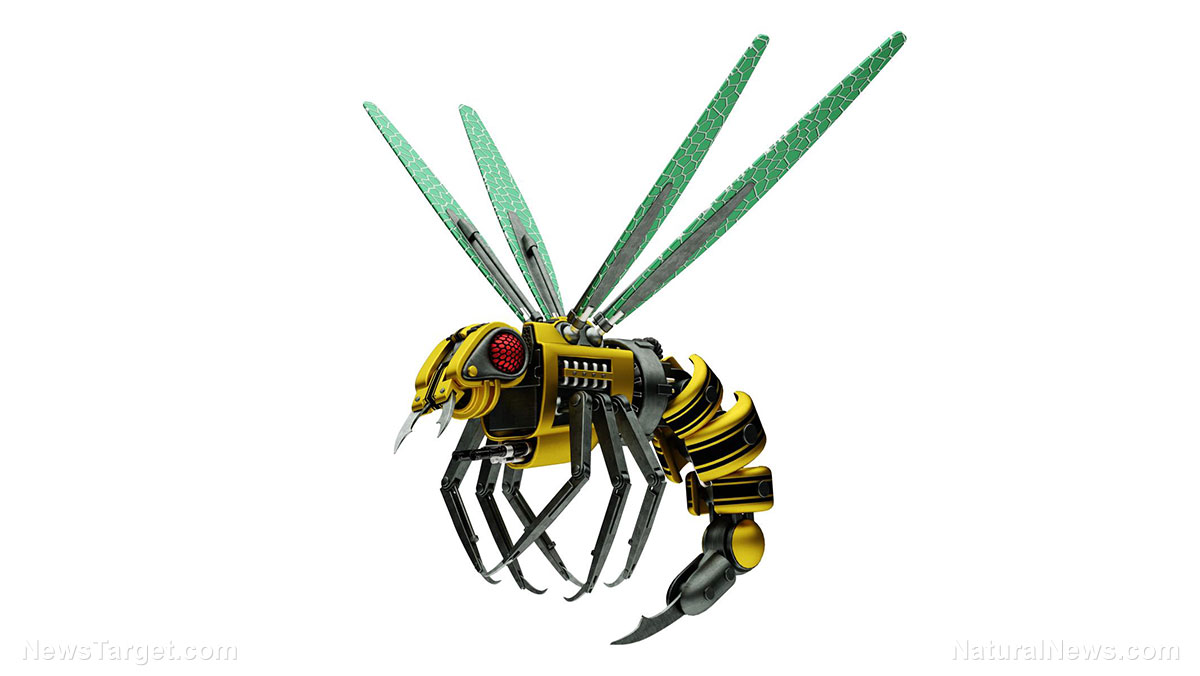New use for drones: Japanese company will use them to annoy overtime staff to get them to leave
08/26/2018 / By David Williams

If office workers find themselves rendering overtime work in order to finish their workload or complete office assignments, that’s not usually a bad thing. But if it happens on a constant basis – so much so that an entirely new culture has ended up revolving around it – then you know that it has become a serious problem.
That’s something that Japan is facing right now.
In an effort to curtail this problem, Japanese office security and cleaning firm Taisei will soon release a new type of drone that’s meant for indoor use and designed to do one thing only: annoy overtime workers and get them to leave earlier than they intend to.
In order to get overtime workers to go out instead of staying in to finish work assignments, the Taisei drone – which is said to be named “T-Frend” – will play the sounds of the old Scottish tune titled “Auld Lang Syne.” This song was most likely chosen because of the fact that it is typically used in Japan to signify that a store is finally closing.
According to Norihiro Kato, a director at Tasei, it will stop overtime workers before they even begin working when it’s already past normal office hours. “You can’t really work when you think ‘it’s coming over any time now’ and hear Auld Lang Syne along with the buzz,” said Kato.
His firm plans to start testing the drones first in their own offices starting in April 2018, and then later release them to market for use in other companies where working overtime is prevalent.
“Pretty silly thing”
While it may seem like a clever use of drones and could be a promising tool in trying to reduce instances of overtime work in Japanese companies, some experts don’t approve of it. According to Seijiro Takeshita, a professor of management and information at the University of Shizuoka, it won’t even do any help at all.
“Will this help? The shower answer is: no,” said Takeshita. “It’s a pretty silly thing and companies are doing this just because they have to be seen to be doing something on the problem.” His whole argument stems from the fact that excessive overtime needs to be addressed at its root – Japan’s now-conventional work culture – and tackled from a more fundamental basis.
He isn’t alone in his disapproval. Scott North, a professor of sociology at Osaka University, has not taken a liking to it. “Even if this robotic harassment gets workers to leave the office, they will take work home with them if they have unfinished assignments,” said North.
North further added that in order to reduce overtime hours, it’s necessary to reduce the workloads of office staff, either by taking out all the time-wasting tasks that need to be done each day or by simply hiring more workers. After all, if there are more people on a team, then there would be more people working on certain things, and projects would be completed much faster.
In any case, it will be a while before testing of the T-Frend drones finally begins, and the Taisei firm will undoubtedly be taking notes of their progress as time goes by. There’s hope that by the time the drones do get released for use in other companies, that some form of action is also taken by the government as well – to amplify their impact. Only time will tell whether or not this novel use of new technology – drones with built-in cameras and loudspeakers in them – will be able to break the decades-old work culture that currently persists in Japan.
See DroneWatchNews.com for more stories on drones.
Sources include:
Tagged Under: corporations, drones, employees, future tech, Japan, Karoshi, office workers, overwork, overworking, T-Frend, Taisei, work culture



















